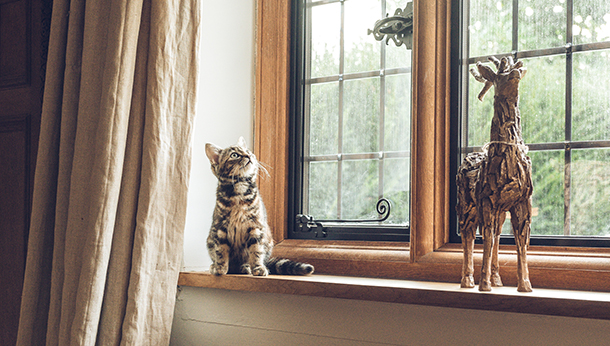Are you succumbing to temptation, unwrapping those Easter Eggs that beckon to you from the mantelpiece? Go on. You deserve it!
Remember though, chocolate can be highly poisonous to your pets and, whether it’s Easter or not, should be kept away from them at all times. The degree of toxicity depends on the type of chocolate; white chocolate is the least toxic, followed by milk – with dark, unsweetened chocolate and cocoa powder being the worst.
The Science:
Theobromine is a caffeine-like ingredient found in cocoa beans, powder and all forms of chocolate. Cocoa powder and dark chocolate typically contain the highest levels, making them the most dangerous.
It does not take a large quantity of chocolate to cause a terrible reaction in your pet’s body. As a general rule, for every kilogram of your pet’s body weight, as little as 20mg of theobromine is enough to cause problems, and the signs will be more severe if over 40-60mg/kg is ingested.
Theobromine poisoning can affect your pet’s heart, lungs and central nervous system. Depending on their size, weight and how much they’ve eaten, symptoms can vary from vomiting and diarrhoea to internal bleeding and, sadly, death.
Symptoms of Chocolate Poisoning Include:
- Sickness/vomiting
- Diarrhoea
- General restlessness (often associated with a fast or irregular heart rate)
- Seizures
- Internal bleeding
Because of their nature and taste buds, chocolate appeals more to dogs than cats. The effects of theobromine poisoning, however, are far worse in cats than in dogs.

If You Think Your Pet Has Eaten Chocolate
Symptoms can often take a few hours to appear, so do not wait until your pet shows signs! If there is any evidence to suggest they’ve eaten chocolate, you should contact your vet immediately.
Though there is not a ‘cure’ for theobromine poisoning, the vet will be able to take the appropriate action based on how much chocolate your pet has eaten and how long ago they ate it. If you act quickly, the vet will be able to make your pet sick or administer a liquid-activated charcoal to reduce absorption into the bloodstream – this is the most effective way of treating chocolate poisoning but it needs to be carried out within two hours of ingestion. In more exaggerated cases, your pet could end up in critical condition.
You Can Help!
If your pet does eat chocolate, make your vet aware of how much they’ve eaten and which type – do this as soon as possible! It’s also handy if you save the wrapper.
In general, keep all chocolate out of your pets’ reach. Store it in a high-up cupboard or in the fridge; is your pet tall or sprightly enough to jump onto the kitchen counter? Keep your pets away from you when you eat and, should you need the loo or if the phone rings, never leave chocolate unguarded. Exercise the same caution when using cocoa powder – this is even more toxic than chocolate.

Remember: there are plenty of tasty – and safe! – treats for your pets out there, so they don’t need to go unsatisfied this Easter.